Last Update: 21 Dec 2021.
The BMPA Quality Pork Charter rules are provided to guide new applicants, Charter participants and service providers through the procedures for application, audit, certification, complaints and appeals that are relevant to its administration and management. The scope of the BMPA Quality Pork Charter rules includes BMPA Pig Welfare, Slaughter and Biosecurity, BMPA Quality Assured Pork (BQAP), BMPA Quality Assured Ham & Cooked Pork, BMPA Quality Assured Bacon and Gammon and BMPA Quality Assured Pork Sausage modules.
It is expected that Charter participants and service providers shall be conversant and compliant with these rules at all times.
Auditable
The auditable requirements of the Charter rules are highlighted this way, to point out the areas that shall be assessed during audits.
The following interpretation of key words shall be used throughout the BMPA Quality Pork Charter:
Animal Welfare Officer is defined by EC Regulation 1099/2009
Applicant is a site seeking approval against one or more of the pork modules
At cost to the applicant or Charter participant relates to the cost of the audit, certification, mileage, reasonable travel expense and where necessary, hotel accommodation
BMPA Quality Pork Charter certificate of conformity is the documentation issued by the service provider on behalf of the BMPA to the Charter participant which details the name of the site and the products that are approved against the pork modules
Certification period is the specific period that the participant is certified to be an approved participant of a pork module(s) and this runs from 1 April to 31 March each year
Charter participant is an existing Charter member
Core standards relate to the BRC Global Standards (Food Safety and Storage & Distribution) and Red Tractor, Quality Meat Scotland Pigs or an equivalent farm assurance standard recognised by the BMPA
Critical non-conformance occurs where there is objective evidence that indicates that the welfare of the pigs being processed, and/or the safety and legality of the food products being produced is at significant risk. Critical non-conformance would also occur where there is evidence that the Red Tractor logo has been used incorrectly, either knowingly (i.e. fraudulently) or erroneously (e.g. pigs from non-assured farms) and that the integrity of the BMPA Quality Pork Charter and Red Tractor Assurance Scheme is compromised.
Derogation is an exemption from a Charter rule or requirement and all requests shall be communicated to the BMPA and service provider for review before they are granted
Farm assured relates to pigs assured by the Red Tractor, Quality Meat Scotland (Pigs) or an equivalent farm assurance standard recognised by the BMPA
Major non-conformance occurs where there is objective evidence, that indicates that the welfare of the pigs being processed, and/or the safety and legality of the food products being processed could be at risk. Major non-conformance would also occur where there is evidence that the Red Tractor logo could, through lack of control or identification, be used incorrectly (e.g. isolated incidents of missing batch cards) which if not addressed could place the integrity of the BMPA Quality Pork Charter and Red Tractor Assurance Scheme at risk.
May indicates a best practice aspiration that is not a mandatory requirement of the Charter
Minor non-conformance occurs where there is objective evidence that an error or anomaly has occurred against the requirements of Charter, but which does not impact on animal welfare, food safety, product legality, or the integrity of the BMPA Quality Pork Charter or Red Tractor Assurance Scheme
Module Participant Number (MPN) is the coded identity for Charter participants that appears on the BMPA Quality Pork Charter certificate of conformity and on any non-conformance summary reports presented to the BMPA PTAC
Non-eligible material refers to any pork that fails to meet the requirement of the BMPA Quality Pork Charter
Observation is an advisory term that is used by the auditor to describe a situation, during a Charter surveillance audit, where compliance to an individual clause within a pork module has been met but it falls short of the requirements of the BRC Global standard. Observations raised shall be closed out by the Charter participant.
Pork module(s) is a reference to a specific product standard(s)
PTAC relates to the BMPA Pigmeat Technical Advisory Committee
Quality Pork Charter or Charter is a reference to the collection of the Charter rules, procedures and pork modules
Renewal notice relates to the notice given to a Charter participant by the service provider to renew certification against one or more of the BMPA pork modules usually 6-8weeks before the next certification period begins
Renewal period relates to the period preceding the expiry date of the participant’s pork module certification
Surveillance Audit is a routine Charter audit (announced or unannounced) carried out by the Service Provider on behalf of the BMPA to seek assurance that Charter participants are compliant with Charter rules, protocols, and derogations that have been approved by the PTAC. Should a derogation be in place at the participants site this will be checked for compliance.
Spot Check Audit is a non-routine check carried out by the Service Provider or other nominated body, on behalf of the BMPA to investigate concerns that have been raised about certain aspects of the Charter and observations raised shall be closed out by the Charter participant.
Service provider is an independent certification body approved by the BMPA to audit applicants and existing Charter participants against the requirements of the Quality Pork Charter
Standard operating procedure (SOP) a set of step-by-step instructions compiled by an organization to help workers carry out routine operations
Shall is a mandatory requirement of the Charter
SIRA (stable isotope reference analysis) refers to the AHDB Pork stable isotope reference analysis test which allows the country of origin of pork bearing the Union Jack flag, the Red Tractor logo or which is British, to be established.

